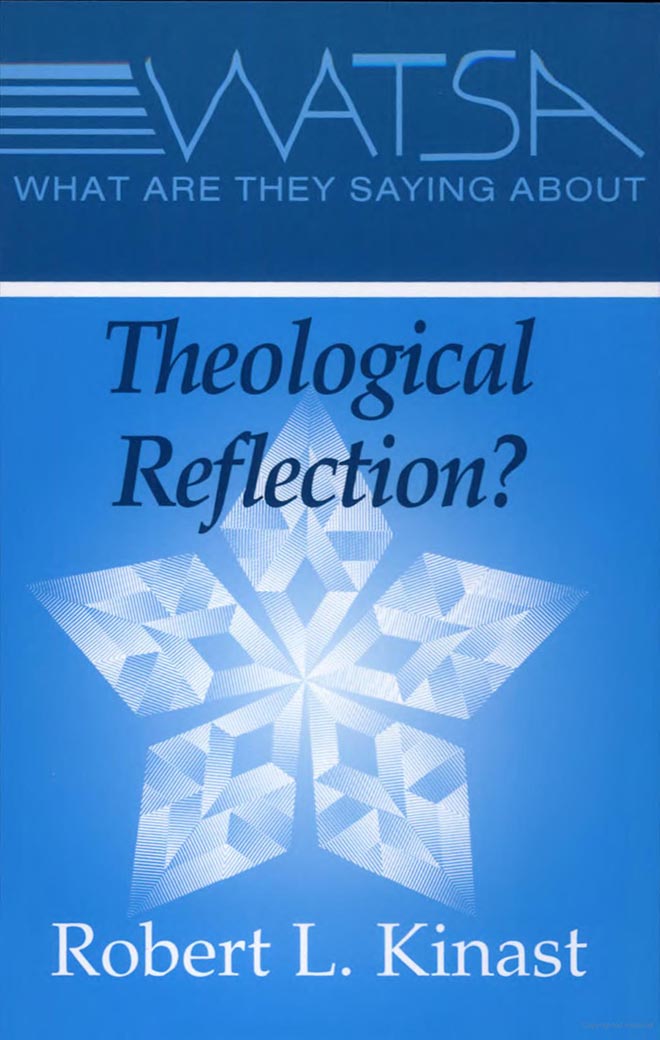Robert Kinast is Director of the Center for Theological Reflection, Indian Rocks Beach, Florida. He is a leading authority on theological reflection. What are they saying about theological reflection, published by Paulist Press in 2000, explores five styles of theological reflection.
1. Kinast’s exploration of the Ministerial style (training people for ministry) centres around Method in Ministry by James D and Evelyn Eaton Whitehead.
2. The spiritual wisdom style of theological reflection is ‘rooted in the veryday life experiences of believing people’. Kinast here looks at material by Thomas Groome, Patricia Killen and John de Beer.
3. The Feminist style is described as a collective enterprise with many voices throughout the world contributing. Kinast introduces work by Elizabeth Schussler Fiorenza, Elizabeth Johnson, Mary Daly, Sally McFague and Mary McClintock Fulkerson.
4. The Inculturation style of theological reflection encourages participants to reflect in and on their cultural setting. Kinast explores Robert Schreiter’s work, along with issues relating to Hispanic/Latino and African American cultures.
5. The Practical Style of Theological Reflection, as championed by Don Browning, aims for a critical theological reflection on current praxis rather than applying theory to practice. It concentrates on the community of faith and its relationship to larger society rather than the pastor and the pastor’s relationship to the congregation (clerical paradigm).
This easy-to-read book is a useful beginning for getting one’s head around twenty five years of writing on theological reflection as a practice.

Considering Generational Change
The Ministry Formation model of theological reflection helps Christian leaders consider their own response to generational change in wider society and in the church.
The spiritual wisdom approach allows for the possibility that fresh experience may bring new insights to the church.
The Feminist approaches to theological reflection introduce tools such as the hermeneutic of suspicion, the critique of power and the valuing of unheard voices. These can all be applied to the church’s relationship with its emerging generations.
The inculturation approach provides a useful entry point to the consideration of context, both global and local.
Practical theology as a discipline allows for the dialogue between pragmatic considerations and the historical and systematic streams of theology – a useful reality check for both Christian leaders seeking to be both relevant to new generations and true to their shared Christian beliefs.
